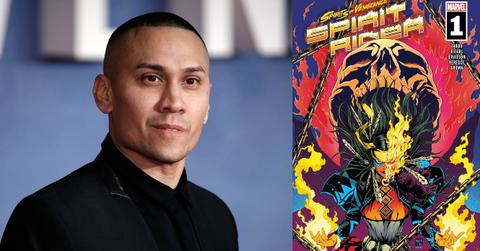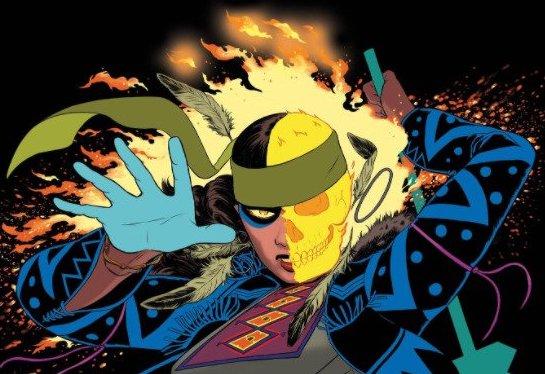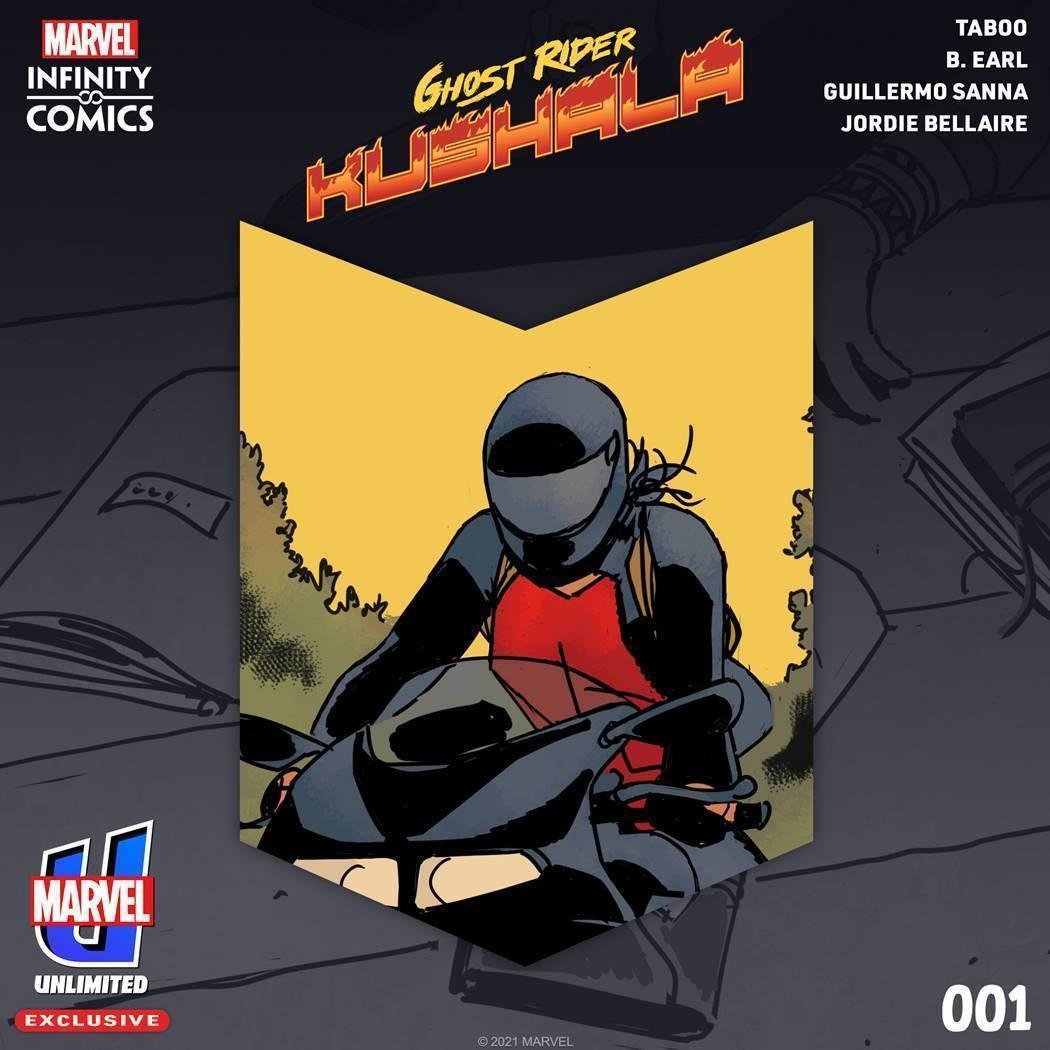'Ghost Rider: Kushala' Writers Taboo and B. Earl Bring Representation in New Marvel Comic (EXCLUSIVE)
Published Oct. 14 2021, 11:15 p.m. ET

While the Marvel Cinematic Universe may be rapidly expanding as we speak, the comic company's heroes are still getting new storylines. The Marvel Unlimited app is home to many new stories for our heroes, including the new Ghost Rider: Kushala series, written by B. Earl and Taboo (from the Black Eyed Peas).
These co-writers talked exclusively with Distractify about their new comic and answered questions about who Kushala is and just where she fits into the MCU's expanding multiverse.
Who is Kushala? Where does 'Ghost Rider: Kushala' fit in the Marvel timeline?
While Kushala has yet to appear in the Marvel Cinematic Universe, she's a Marvel comics figure who first appeared in a Dr. Strange comic. A member of the Apache tribe, her parents were killed by U.S. soldiers in the mid-1800s, and in an act of vengeance, she prayed for a way to punish those who killed her family. Instead of having her prayers answered, though, she was possessed by a Spirit of Vengeance, and thus she became the Demon Rider.

In the comics, she is convinced by Merlin to join the Sorcerers Supreme to defeat a being known as The Forgotten, pulling her from the 1800s to bring her into the present day to defeat the evil.
Much of Kushala's storyline focuses on the stories of Indigenous peoples and a matriarchial family dynamic.
"I always say this in interviews about the matriarch system in my own personal life, my grandmother being my biggest inspiration," Taboo said. "My wife is the motivation and inspiration to the family so there's always a matriarch system in how I was brought up, [and] we get to have Kushala is the matriarch our story ... I'm all about the matriarch system and I'm all about empowering women."

According to B. Earl and Taboo, their version of Kashula's story picks up after the events of the recent Doctor Doom comics. Dr. Strange had sent the Sorcerer Supreme back to her time to save the soul of Johnny Blaze, the original Ghost Rider, before she (and many in her ancestral line) join this mission against Doctor Doom.
In order to be sure that they told Kushala's story accurately, Taboo and B. Earl said they worked closely with members of the Apache tribe to accurately represent their traditions and myths.
"The representation really matters to be able to bring that to Marvel," Taboo said. "If we can't speak to the character that we're dealing with specifically, we always want to highlight heroes from Native communities as well."
Will Kushala be added to the MCU anytime soon?
Kushala's story has long been tied in with Dr. Strange's, but despite there being multiple movies featuring him, she has yet to join the expansive universe. But despite not being brought to the big screen just yet, B. Earl says he thinks there's potential for her to join the MCU soon.
"As long as the story is great, the characters memorable, and the stakes meaningful, any Marvel story has the potential to be adapted into the MCU," he says.
The storyline created in Ghost Rider: Kushala also has a connection to the greater multiverse Marvel has only begun to expand on in its big-screen adaptations, meaning there's hope yet.
"There is a multiversal connection to this, and we have an element that you'll find out later in the series that connects with Doctor Doom," B. Earl says.